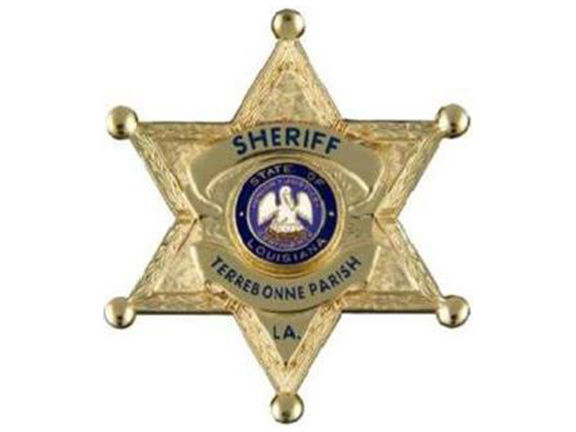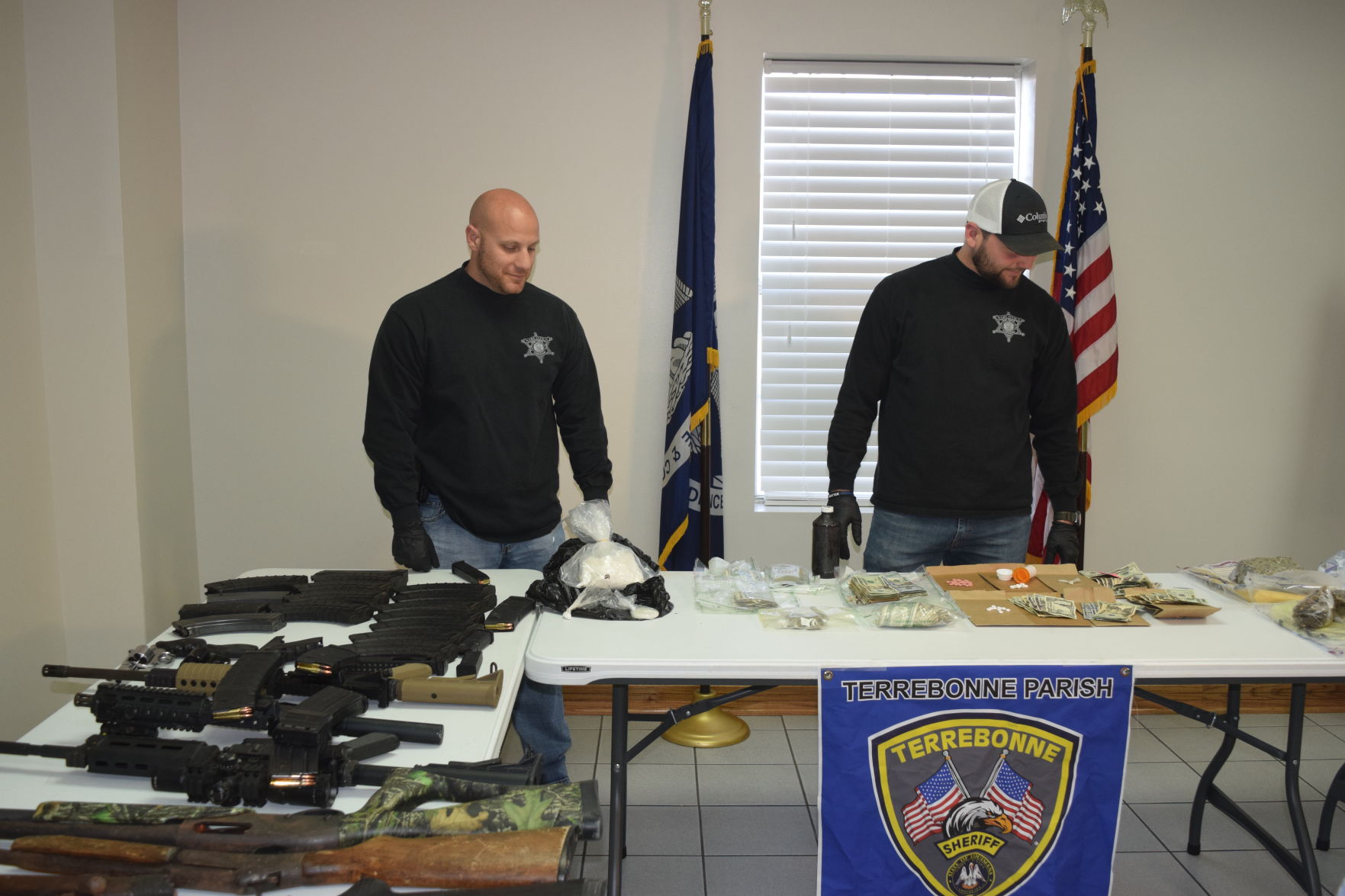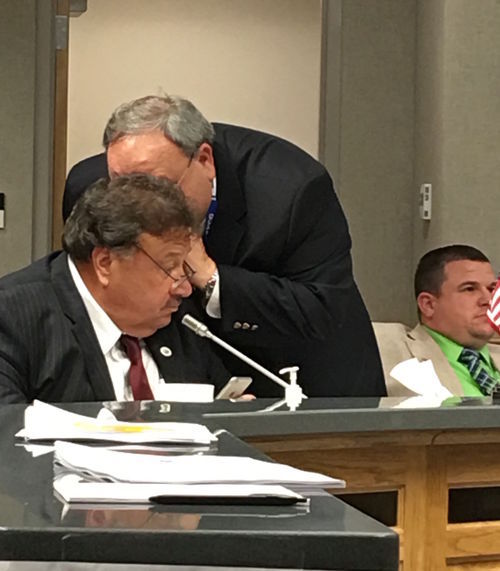
Suspect arrested on multiple charges
March 15, 2017
Guns, drugs, dogs seized in Gibson raid
March 15, 2017As a controversial Voting Rights Act case continues in Baton Rouge, an attorney who represents the Terrebonne Parish Consolidated Government has attempted – again – to involve the parish directly in a case brought against the state’s executive branch and its attorney general by a Terrebonne civil rights organization, but was rebuffed by the trial judge.
(Read an expert’s report from the case file by clicking here)
Parish Attorney Julius Hebert entered the well in U.S. District Judge James Brady’s courtroom Tuesday asking that he be allowed to assist, noting that the attorneys general who are representing their boss and Louisiana’s governor in the matter do not know the people or election practices of Terrebonne Parish. But he was rebuffed.
The Terrebonne Parish NAACP brought the suit now at trial in 2014, alleging that the at-large method of electing Terrebonne Parish’s five district court judges violates Section 2 of the Voting Rights Act by diluting black voter strength, thus ensuring that black voters will never be able to elect a judge of their choice. The state rejects that claim, alleging that requirements for finding a violation of the Voting Rights Act have not been met.
Hebert’s request came during a second day of highly technical testimony from voting rights and political science scholars, as well as emotional recollections from black Terrebonne Parish residents of their experience with racial discrimination from childhood on.
The Parish Attorney had also fielded a request for Terrebonne Parish to be a litigant in the case, at the request of Parish President Gordon Dove shortly after he took office last year. Then, as now – and as he did when he represented Terrebonne in the Louisiana Legislature – Dove has expressed opposition to a change in the voting scheme.
Hebert has been in court during each day of the trial, at a rate of $150 per hour, and will continue to be present as it continues.
Dove said his parish attorney’s presence – and the cost – are completely justifiable.
“I would be lax in my duty as parish president not sending our legal people up there,” Dove said. “The people of Terrebonne Parish have a stake in this. You have a group from New York City with the NAACP and you have individuals trying to completely rearrange and devastate our judicial system as we know it. We have to send Julius to find out what they are trying to do to our judicial system, trying to run it the way they want it and not the way the people in Terrebonne Parish want it or how it has been for however long it has been in place.”
Dove will have his own day in court Monday when he appears as a witness for the defense. Several sitting judges from Terrebonne are expected to testify later in the proceedings, including Judge Juan Pickett. Pickett is Terrebonne’s first elected black judge. But some in the parish’s black community say he would not have been their choice.
District Attorney Joe Waitz Jr. is also expected to testify as a defense witness.
During Tuesday’s proceedings Dr. Allan Licthman, an expert on quantitative and qualitative historical methodology, testified that at-large election of judges has a discriminatory effect.
“No matter how you cut this pie of racially polarized voting, it still comes out with the same flavor,” Lichtman said. “Most of the time, African Americans are getting single digit support from white voters. A minimal, almost token white vote.”
He addressed the perception that Pickett’s non-opposed election was sponsored by the white community, noting that Pickett’s campaign donations included large checks – over 18 donations of more than $1,000 – from whites.
That testimony appeared to punctuate earlier testimony from the Rev. Vincent Fuselier, the black pastor of Houma’s New St. Matthew’s Baptist Church, and a plaintiff in the suit.
“In a way, I believe it was just a way to throw us off in the lawsuit,” Fuselier said of Pickett’s unopposed candidacy, stating in response to questions that he does not relate to Pickett. “It’s like a stranger in a strange land – he didn’t live like we [people of Houma] lived.”
Fuselier said he had asked attorney friends of his to run against Pickett but that they demurred.
“They would not run because they didn’t have a snowball’s chance in hell,” he said. “As a black pastor of Terrebonne Parish, I’ve pastored black and white. I can’t seem to understand why it is we have so much negativity about a minority judgeship. We’re supposed to be equal. We do the Pledge of Allegiance. Many of us say we believe in God…”
Fuselier spoke of his own experiences with disparate treatment due to race, recalling how as a child, at a time when there were two Houma public water fountains, one for blacks and the other for whites, he drank out of the “white” fountain, because the “black” one had “green stuff” on it.
A policeman, he said, knocked him down, when he made that effort.
Another plaintiff, former Houma Assistant Fire Chief Daniel Turner, testified to his experience with discrimination, relating how he was hired to the department a year after passing a test, while 14 white men were hired immediately, even though they had not taken the test.
He filed civil rights complaint after a friend told him he overheard a public official in a bathroom say he would “never hire a ni**er.”
Although he became an assistant chief eventually, Turner said that once this occurred he faced resistance, what he termed “target practice.”
Turner said he counts Judge Pickett as one of his best friends. But he also expressed a belief that Pickett “was anointed” to be the parish’s first black judge, and that the voting scheme is discriminatory.
But the voting scheme, in his opinion is still discriminatory.
During the proceedings, assistant attorneys general Madeline S. Carbonette and Angelique Duhon Freel raised numerous objections as the plaintiffs’ witnesses testified, at times appearing to try Brady’s patience.
One objection concerned production of a report on racial and ethical fairness in Louisiana courts, commissioned by Louisiana Supreme Court Chief Justice Anthony Calogero. They questioned the authenticity of the document and alleged that they had not received a copy.
Lead plaintiff attorney Leah Aden told Brady that her adversaries have had a copy in 2015.
“They’re simply not getting blindsided,” she said.
The objection was overruled.
The courtroom has been packed with mostly black Terrebonne residents, some of whom came in a chartered bus.
Among the observers Monday and Tuesday was Anthony Lewis, a black attorney who ran unsuccessfully for a Terrebonne judicial bench in 1994, an election referenced by several expert witnesses as proof of the disparity between black and white voters in the parish’s judicial elections.
“This is a very historical proceeding,” Lewis said during a break in the proceedings. “It’s long overdue. It gives the residents of Terrebonne the opportunity to analyze ad recognize history together. [A minority district] would uplift our spirits. It would give kids an incentive to become lawyers – even judges – and not limit their horizons.”
The courtroom was closed on Wednesday, but proceedings resume will resume Thursday, when attorneys for the plaintiffs are expected to rest their case.
——
Caitie Burkes is a reporter for the Manship School News Service.
Parish Attorney Julius Hebert consults with Parish President Gordon Dove at a council meeting last year.











